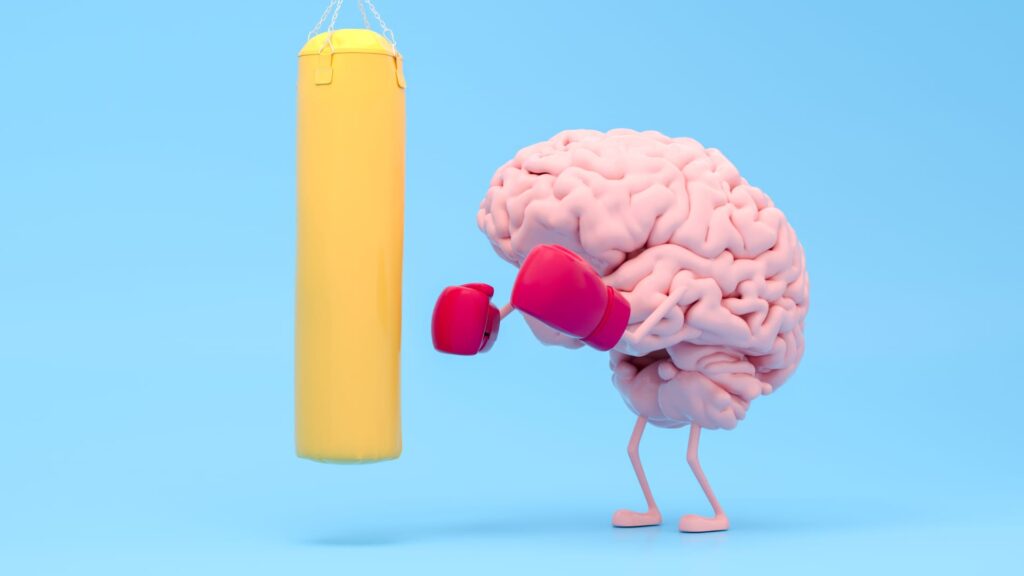Don’t smoke. Don’t drink alcohol. Don’t do drugs. Exercise frequently. Eat a healthy diet. Get good sleep.
You’ve probably heard all of this before. It’s the standard advice given by doctors and health advocates. And for good reason: This guidance is solid and forms the foundation for long-term health and quality of life.
But there are a few other things many people do all the time that, as a neurologist, I try to avoid to keep my brain healthy and memory sharp.
1. Always relying on GPS for navigation
GPS has made our lives much more convenient. Before its invention, people had to rely on foldout paper maps, spatial reasoning, and environmental cues to navigate. These days, that’s become a lost art.
Over time, relying too much on GPS can weaken your spatial memory. One study showed that the hippocampi — the memory centers of the brain — are larger in taxi drivers because they need to memorize complex street layouts.
Another recent study found that taxi and ambulance drivers were less likely to die from Alzheimer’s disease than people in other professions. One possible explanation is that these jobs require frequent, real-time use of spatial and navigational skills, which may help maintain or even improve hippocampal health.
This isn’t to say people shouldn’t use GPS for traffic updates, but there are ways to actively engage your spatial memory without it. For example, try planning a route to a new café or exploring a different way home from work.
2. Drinking too many energy drinks
Many of us work long days and feel like we never have enough energy to get through them. But relying on energy drinks isn’t the solution. These beverages often contain high levels of caffeine, taurine, and B vitamins. Consuming large amounts can lead to cardiovascular issues like high blood pressure, palpitations, and even arrhythmias.
Neurologically, excessive energy drink consumption can cause insomnia, anxiety, restlessness, and, in more severe cases, seizures.
A lesser-known risk is long-term buildup of B vitamins in the body. Normally, excess B vitamins are flushed out naturally since they’re water-soluble. However, a notable exception is vitamin B6, often consumed in sports and energy drinks. Excess B6 can accumulate over time, leading to toxicity and potentially causing peripheral neuropathy.
3. Overusing over-the-counter medications
Just because something is available over the counter (OTC) doesn’t mean it’s harmless. Always follow your doctor’s instructions and the medication label, and don’t exceed the recommended dosage.
For instance, common side effects of overusing aspirin, ibuprofen, and other NSAIDs (or nonsteroidal anti-inflammatory drugs) include peptic ulcers, GI bleeding, acute kidney injury, and even chronic kidney disease. Tylenol (acetaminophen) is often seen as safer for the stomach and kidneys, but acetaminophen overdose is the leading cause of liver failure in the U.S.
Some lesser-known OTC products can cause surprising side effects. I’ve seen bismuth toxicity from excessive Pepto-Bismol use lead to dementia-like symptoms. I’ve also seen patients who, after following advice from online wellness influencers, consumed too much zinc, resulting in spinal cord injuries.
4. Enjoying nature without protecting yourself
I love hiking and spending time outdoors. But when I venture into nature, I always:
Know my environment and surroundingsUse bug spray and wear long sleeves when appropriateCheck for ticks afterward
Each year, especially during the summer, I see previously healthy people come into the hospital with fever, confusion, and sometimes seizures or coma, due to mosquito-borne or tick-borne illnesses. Some of these infections, like Lyme disease, are treatable if caught early. Others can leave lasting damage to the brain and nervous system.
Taking small preventive steps to avoid bug bites can potentially save you from life-altering infections.
Baibing Chen is a double-boarded certified neurologist and epileptologist practicing at the University of Michigan. Find him on Instagram, TikTok, and YouTube.
Want to boost your confidence, income and career success? Take one (or more!) of Smarter by CNBC Make It’s expert-led online courses, which aim to teach you the critical skills you need to succeed that you didn’t learn in school. Topics include earning passive income online, mastering communication and public speaking skills, acing your job interview, and practical strategies to grow your wealth. Use coupon code MEMORIAL to purchase any course at a discount of 30% off the regular course price (plus tax). Offer valid from 12:00 am Eastern Time (“ET”) on May 19, 2025, through 11:59 pm ET on June 2, 2025. Terms and restrictions apply.
Plus, sign up for CNBC Make It’s newsletter to get tips and tricks for success at work, with money and in life, and request to join our exclusive community on LinkedIn to connect with experts and peers.


